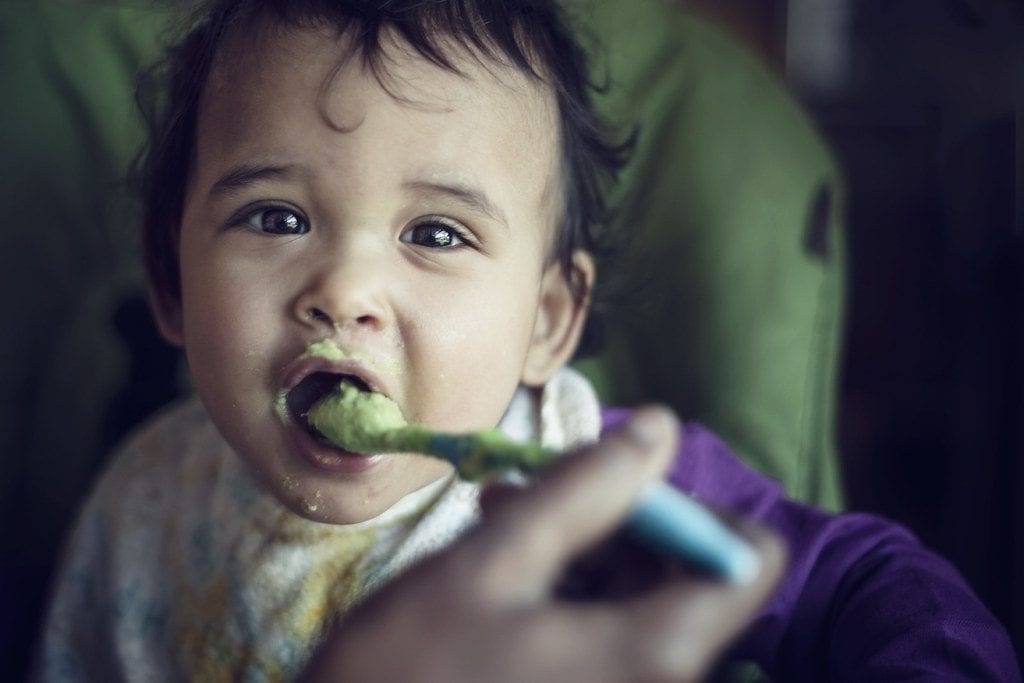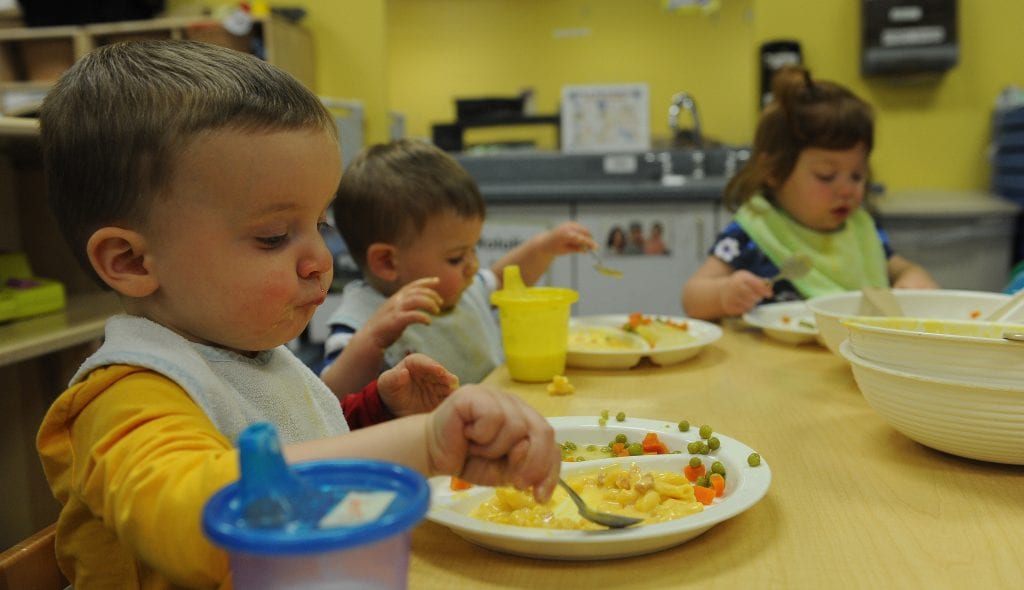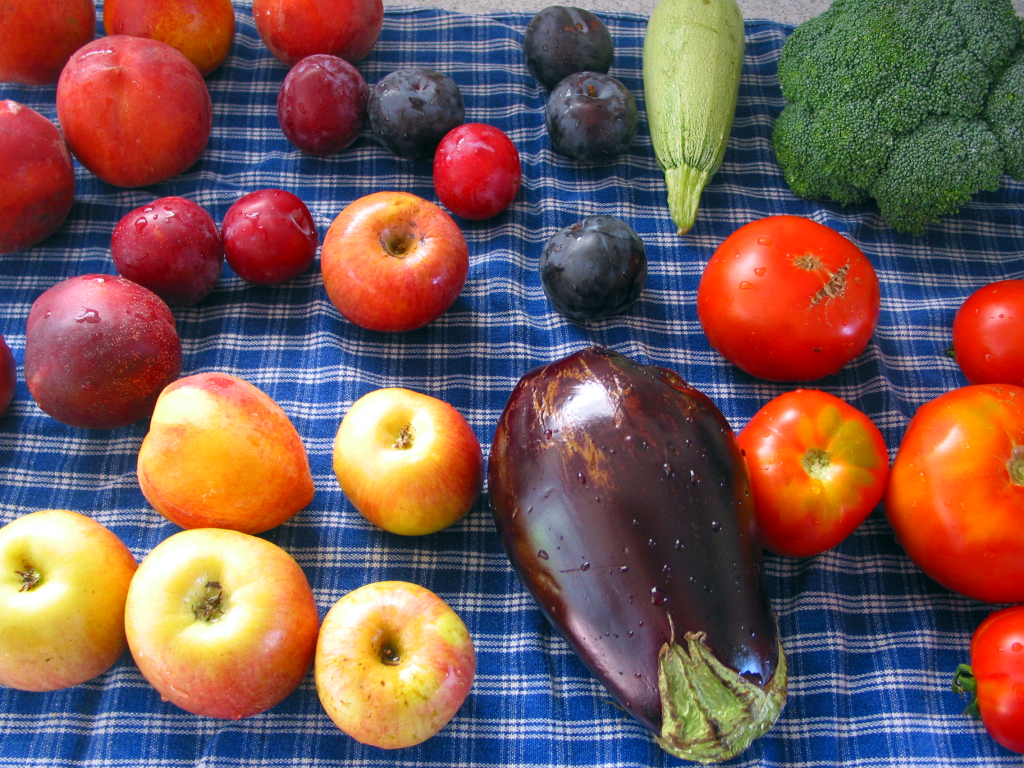Babies have quite the appetite! You feed, feed, and feed them, and yet they’re always hungry. However, once your baby hits a year old, their nutritional needs may change a little.
When feeding your baby, you want to make sure they are getting the right amount of nutrition and not eating too much or too little. So when you notice your baby eating less after they turn one, you may wonder what the solution is, and why your baby isn’t eating as much.

It is because a baby under a year old has so much growth, and growing requires food. After turning a year old, the baby is still growing a lot but is becoming a little less, and there’s less need for food. So if your baby is around a year old and seems to have less of an appetite, that’s normal. While talking to your doctor about your baby’s nutritional needs is still a good idea, you need not worry much about why they’re not eating enough.
How Much Does Aa 1-Year-Old Need Calorie Wise?
A baby around this age typically needs about 1,000 calories, which is half of what the average person needs.
Now then, just like adults, babies are going to want different calorie amounts some days. A baby may be hungry and demand food all day, yet another day, not eat that much. While you should stick to a 1,000 calorie diet as best, you can remember that there are going to be exceptions as well.
Always count the calories per serving and make sure you’re tallying it. While it doesn’t need to be precisely 1,000 calories, try to get as close as possible. It can help your baby stay healthy and growing.

How Often Should I Feed The Baby?
How you space your meals is always essential for both adults and babies. If you feed the baby all at once, the baby may get hungry later, or feel too full. You must space it out. Three meals a day, and maybe some couple of snacks are the best way to do it. Scheduling feeding time is how should a one-year-old eat.
Again, there will be exceptions. Some days, you may have two meals and a snack, or four meals. However, on average, three meals a day and a snack.
Take a look at your baby’s sleeping schedule. What’s the right way to space out three meals and two snacks? Have a plan for feeding your baby, and try sticking to it the best you can. If the diet doesn’t seem to be working, give it a bit of time. Just like an adult dieting, a baby may reject the food a bit at first, but their body soon adjusts.
What Should A 1-Year-Old Eat?
If you’re confused about what a child of this age should eat, that’s okay. You have been so used to feeding your baby via breast or formula. Now, they’re starting to develop teeth and can have other foods.
A one-year-old should get around the same nutrition and food groups as an adult. A balance of fruits, veggies, proteins, grains, and all that other wholesome stuff is needed. You should feed your baby with a variety of foods and figure out their exact palate. Try looking at different textures, colors, flavors, and other good stuff. This way, you can figure out what your baby likes and dislikes, and get them adjusted to healthful foods. Kids should know a variety of foods and flavors. This technique is how should a one-year-old eat to expand their palate.

Fat Amounts
Fats are essential when it comes to what a baby eats. Look at the calories from fat. Your baby should be getting half of their calories that way. Fat is essential as a baby grows, particularly in the 1-2 age. Whenever your baby reaches 2, you can lower fats, but still have some fats in their diet.
Fats are essential for growth and general development.
What Not To Feed The Baby
There are some things that you shouldn’t feed a 1-year-old until they are older. Here are a few examples:
Feed your baby natural foods and try not to butter them up, spice them, salt them up, or sweeten them. While you may like that, the baby doesn’t need it, and it can change their taste in foods. Also, it can be bad for a baby’s health. Your baby doesn’t need to try a spicy pepper challenge yet.
Don’t feed your baby overly hot (temperature-wise) foods. If it feels a little warm, cool it down.
Some foods your baby can choke on. Peanuts, whole carrots, seeds, hot dogs, peanut butter chunks, and other grains may be a choking hazard. It is because the baby doesn’t chew like people over four do, and they don’t grind the food. So make sure the food is in smaller pieces or ground up. That’s why baby food is often mushy.
Don’t feed the baby alone. Seeing how the baby likes to walk, some of them may run away with food, but make sure they’re sitting down and enjoying the food beforehand. Otherwise, it may be a disaster.

Practice Good Habits
As your baby gets older, they won’t need such rigorous feeding demands, but you should instill proper nutrition and dieting in them. An occasional ice cream cone or candy bar is okay, but if you overload your baby on empty calories, fast food, and other foods that aren’t that great, it can create some bad habits.
Listed above are the guidelines on how a one-year-old should eat. These habits can be hard to break when the baby grows older. It can be hard for an adult raised on junk food to have a healthy diet and stick to it, and that’s why meeting your baby’s nutritional needs are important.
During the toddler years, that’s when a baby’s taste slowly begin developing, so make a good example and feed them the right way.
And that’s how you feed a 1-year-old. Now that kids can eat more foods, celebrate it by giving them some healthy, wholesome foods.
How Much Should A 1 Year Old Eat FAQs
Last Updated on January 31, 2023 by Rejie Salazar
DISCLAIMER (IMPORTANT): This information (including all text, images, audio, or other formats on FamilyHype.com) is not intended to be a substitute for informed professional advice, diagnosis, endorsement or treatment. You should not take any action or avoid taking action without consulting a qualified professional. Always seek the advice of your physician or other qualified health provider with any questions about medical conditions. Do not disregard professional medical advice or delay seeking advice or treatment because of something you have read here a FamilyHype.com.